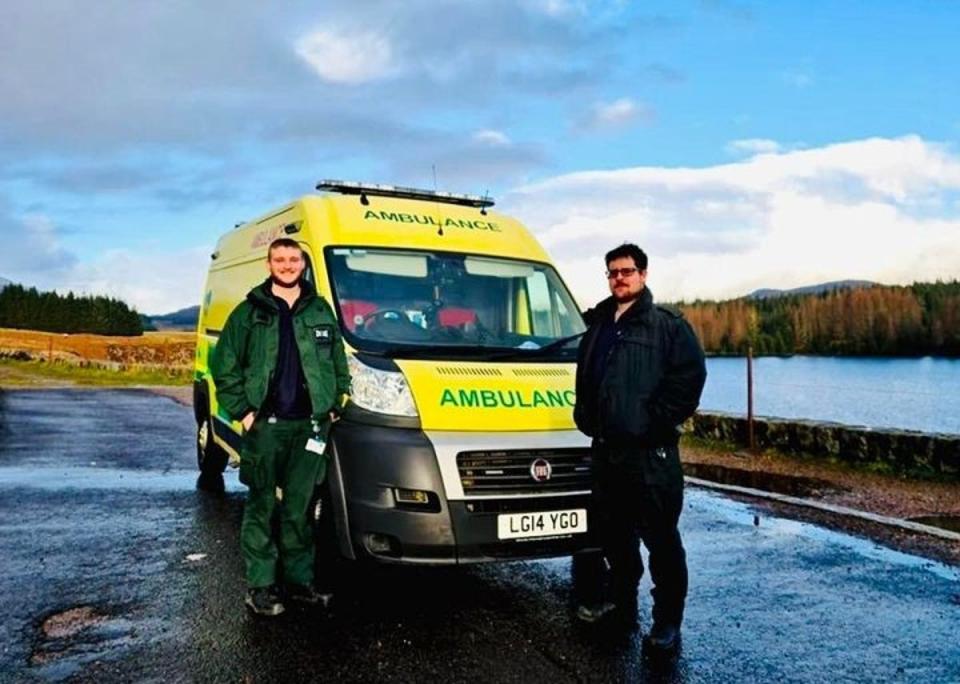Private ambulance service charging £99 opens to tackle patient delays amid concerns over a ‘two-tier’ system

A new private ambulance service will offer faster travel to A&E for those caught out by half-day waits for NHS ambulances, The Independent can reveal, in a sign of a growing “two-tier” health service.
MET Medical ambulance service will begin by charging £99 for a call-out, and could serve thousands of people a week, its chief executive Dave Hawkins has said.
Mr Hawkins, who is a paramedic himself, said he launched the service after seeing his elderly relatives wait too long for NHS ambulance services following falls.
It comes as waiting times for ambulance service reached a crisis point in the last year, with frail and vulnerable people waiting hours for an ambulance.

Ambulance response times hit record highs over 2022-23, with people who should have an ambulance within 20 minutes waiting an hour and 30 minutes in December 2023.
According to estimates from the Association of Ambulance Chief Executives, 34,000 patients were likely to have suffered harm due to these delays – this hit a high of more than 60,000 in December 2022.
The latest data shows 940,000 NHS ambulance hours were also lost to crews being forced to wait outside busy A&Es for more than two hours to offload patients.
MET Medical will still have to wait to deliver patients if they are seen as a priority, but it said its patients are likely to be lower priority and can be dropped at A&E without waiting for a handover.
Mr Hawkins said vulnerable patients waiting for an ambulance can wait up to 12 hours.
“It’s that moment when you’re out of options, it’s really a horrible place to be, particularly if it’s a loved one … It is a shame, like we’ve seen from the stats and everything, that the health service is failing us.
“The problems we’re facing in the NHS have built up over a lot of time due to increased demand, ageing population, and a lot of staff that are working in those busy environments.
“Even though most are caring and committed and lovely, people are overworked and are saying, ‘you know what, I’ve had enough’. I don’t know what the solution is to that.
“All I do know, if my family member is ill and I can’t get an ambulance I want to have a backup,” Mr Hawkins said
The service will cover St Albans and Hertfordshire and has around 25 private ambulances, each of which will be led by paramedics. It has previously provided services directly to East of England Ambulance Service over the last 10 years.
Private ambulance services are often used by the NHS for non-emergency situations, such as attending care appointments.
However, MET Medical will be accessed directly by patients as a backup to NHS ambulance services if they face a long wait, and can take patients to private hospitals if they have insurance.
It will only be for those patients who don’t need life-threatening or critical care like heart trouble or a critical wound – these cases will be advised to call 999. But for elderly patients who have suffered a fall, it could cut hours from delays. The service is registered and regulated by the Care Quality Commission.
Mr Hawkins said his drive to set up the new service was after his mum and dad became ill and waited too long for NHS ambulance services.
Describing an incident when his daughter became unwell, the paramedic said it was quicker to get an Uber to hospital than a local ambulance.
He added: “We carried out several trials in the past and assisted with a variety of patients. In one case, a patient had fallen outside and been advised the ambulance service would be six hours ... our paramedic ambulance arrived in around 20 minutes.
“The crew found the patient was actually having a stroke and were able to transfer them to a specialist hospital in time for treatment.”
Jacob Lant, chief executive of social care charity National Voices, said introducing privately funded ambulances to urgent calls would “absolutely create a two-tier system and goes against everything the public tell us they want to see. Repeated national surveys and engagement exercises by countless organisations show enormous and continuing support for a free at the point of use NHS. Nowhere is this more important than in urgent and emergency care.”
He said ambulance response times are still not being met consistently, especially when the service comes under pressure during winter. However, introducing a service which could fast-track care was not a “fair and equitable response”.
“The NHS needs properly resourcing so it can ensure an ambulance is available for everyone in their time of need,” Mr Lant said.
A spokesperson from MET Medical said in response: “We can see the concerns over that [a two-tier system] but actually, our service is just another option to help relieve pressure on the NHS. It’s not to replace the NHS or emergency services. Some people do already have private health care, so it’s an addition to that.”
A Department of Health and Social Care spokesperson said: “Under our urgent care recovery plan, we provided £200m in 2023-24 to expand ambulance capacity and improve response times, and will maintain that additional capacity this year to further improve performance.”
They added that there have already been “significant” improvements in response times, with category 2 calls – those who should have an ambulance within 20 minutes – 28 per cent faster in February 2024 compared to the year before.

 Yahoo News
Yahoo News 
